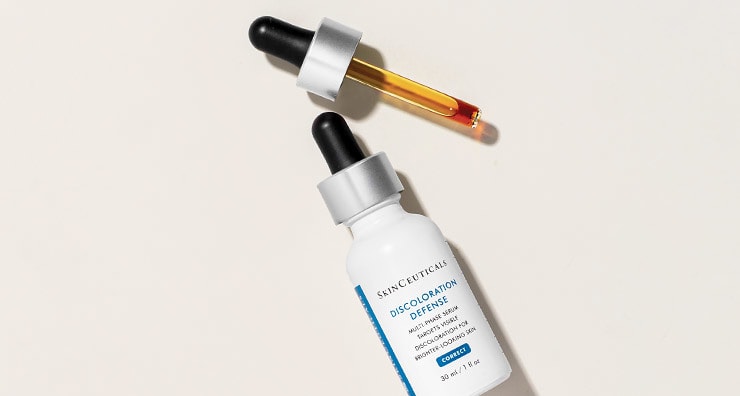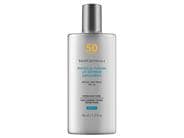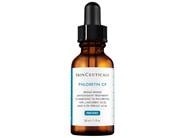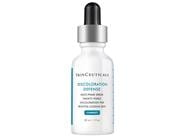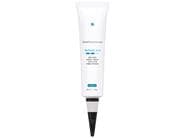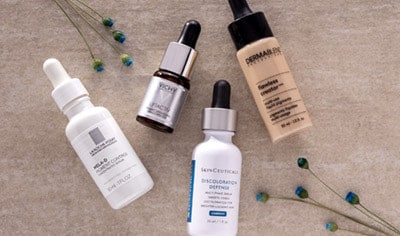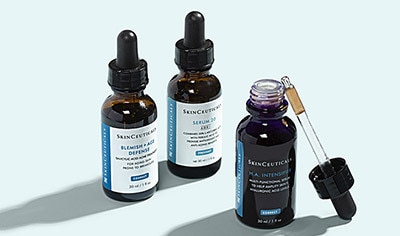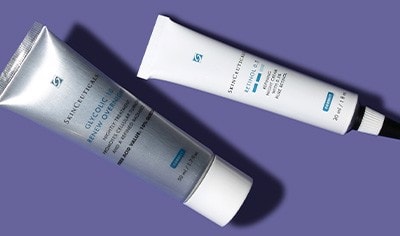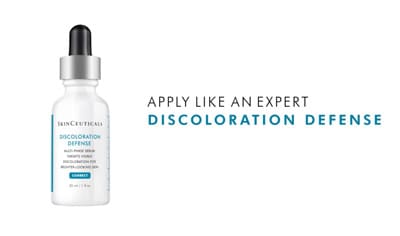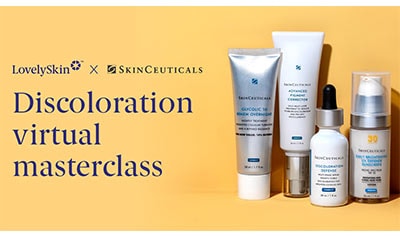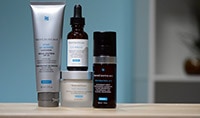The SkinCeuticals experts are here once again to explain how the Discoloration Defense serum promotes brighter skin across all skin types and tones.
From the fairest to the deepest complexions, no skin tone is safe from every form of discoloration. From genetics and sun exposure to hormonal fluctuations, skin discoloration appears uneven skin tone, stubborn brown patches, post-acne spots and other forms. All these forms of discoloration come about when the skin produces extra melanin, the brown pigment responsible for natural skin tones. Lighter skin tones have less melanin, and those with darker skin tones have more, which can impact how you experience sun damage.
Still, every skin tone is susceptible to discoloration. That said, you can ensure your skin stays radiant and even with the right skin care products and habits. Before we address discoloration, it’s important to know how the sun reacts with different skin types. Get better acquainted with how discoloration affects your skin by finding your place on the Fitzpatrick scale.
About the Fitzpatrick Skin Types
The Fitzpatrick scale was created by dermatologist Dr. Thomas B. Fitzpatrick in 1975, and it is still widely regarded as the gold standard for classifying skin by its color and related features. Knowing where you fall on the Fitzpatrick scale helps determine which skin products and procedures are right for you—and, more importantly, what results you can expect.
Fitzpatrick Skin Type I
Skin color (before sun exposure): Ivory
Eye color: Light blue, light gray or light green
Natural hair color: Red or light blonde
Sun reaction: Skin always freckles, always burns and peels and never tans
Fitzpatrick Skin Type II
Skin color (before sun exposure): Fair or pale
Eye color: Blue, gray or green
Natural hair color: Blonde
Sun reaction: Skin usually freckles, burns and peels often and rarely tans
Fitzpatrick Skin Type III
Skin color (before sun exposure): Fair to beige with golden undertones
Eye color: Hazel or light brown
Natural hair color: Dark blonde or light brown
Sun reaction: Skin might freckle, burns on occasion and sometimes tans
Fitzpatrick Skin Type IV
Skin color (before sun exposure): Olive or light brown
Eye color: Dark brown
Natural hair color: Dark brown
Sun reaction: Skin generally doesn’t freckle, burns rarely and tans often
Fitzpatrick Skin Type V
Skin color (before sun exposure): Dark brown
Eye color: Dark brown to black
Natural hair color: Dark brown to black
Sun reaction: Rarely freckles, almost never burns and always tans
Fitzpatrick Skin Type VI
Skin color (before sun exposure): Deeply pigmented dark brown to darkest brown
Eye color: Brownish black
Natural hair color: Black
Sun reaction: Never freckles, never burns, and always tans darkly
While knowing your Fitzpatrick skin type is important, Discoloration Defense makes treating dark spots easier—for all skin types.
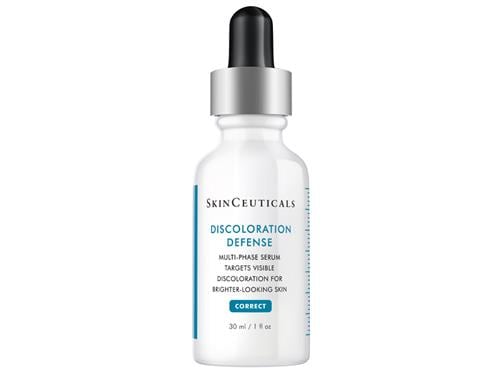
When it comes to doing away with discoloration and making sure those dark spots stay gone, look no further than the SkinCeuticals Discoloration Defense. Clinical studies have shown Discoloration Defense reduces the appearance of discoloration (including stubborn brown patches, post-blemish marks and other dark spots) and promotes an overall brighter complexion in Fitzpatrick skin types I through IV in just twelve weeks.
Deeper skin tones, Fitzpatrick Skin Types V and VI, also see a visible reduction in post-blemish marks as well, meaning you can incorporate this serum into your regimen without worrying about its compatibility with your skin tone.
Why Discoloration Defense
Other than its ability to work well across all skin types, what sets it apart from other skin brighteners? The Discoloration Defense difference comes down to its unique blend of potent ingredients. This formula takes two ingredients you may have heard of, kojic acid and niacinamide, and combines it with two you may have not, tranexamic acid and HEPES.
Together, they work synergistically to improve the appearance of dark spots and minimize the reoccurrence of discoloration with continued use. What’s more, Discoloration Defense may also enhance the results achieved with professional treatments for minimizing dark spots, such as chemical peels and lasers.
Find out each key ingredient’s role in this revolutionary serum below:
- 3% tranexamic acid: This next-generation ingredient helps prevent discoloration.
- 1% kojic acid: Naturally derived from certain fungi, this ingredient works to improve skin brightness.
- 5% niacinamide: Also known as vitamin B3, niacinamide helps improve the appearance of existing discoloration.
- HEPES: This acid helps promote the skin’s natural exfoliation process.
The Importance of an Anti-Discoloration Skin Care Routine
While Discoloration Defense works wonders on sun damage, it really shines—much like your complexion after using it—when used with other complementary products. Using this serum twice daily as part of a comprehensive anti-discoloration regimen can enhance results even further, so slot it into your current regimen or use it as part of our recommended SkinCeuticals routines.
Morning Anti-Discoloration Skin Care Routine
Prevent damage caused by environmental aggressors with a topical antioxidant such as SkinCeuticals Phloretin CF, which also helps reduce the appearance of existing discoloration. Apply Discoloration Defense and follow with a broad-spectrum, mineral-based sunscreen like SkinCeuticals Physical Fusion UV Defense SPF 50, which features a universal tint that enhances natural skin tone and boosts radiance.
Evening Anti-Discoloration Skin Care Routine
Apply Discoloration Defense to clean skin. Follow with SkinCeuticals Retinol 0.5 to help diminish the appearance of fine lines and wrinkles while enhancing the effects of Discoloration Defense.
Still not sure if you should pair the Discoloration Defense with the Phloretin CF or C E Ferulic? Find out which product pairing suits your skin by reading our blog!


